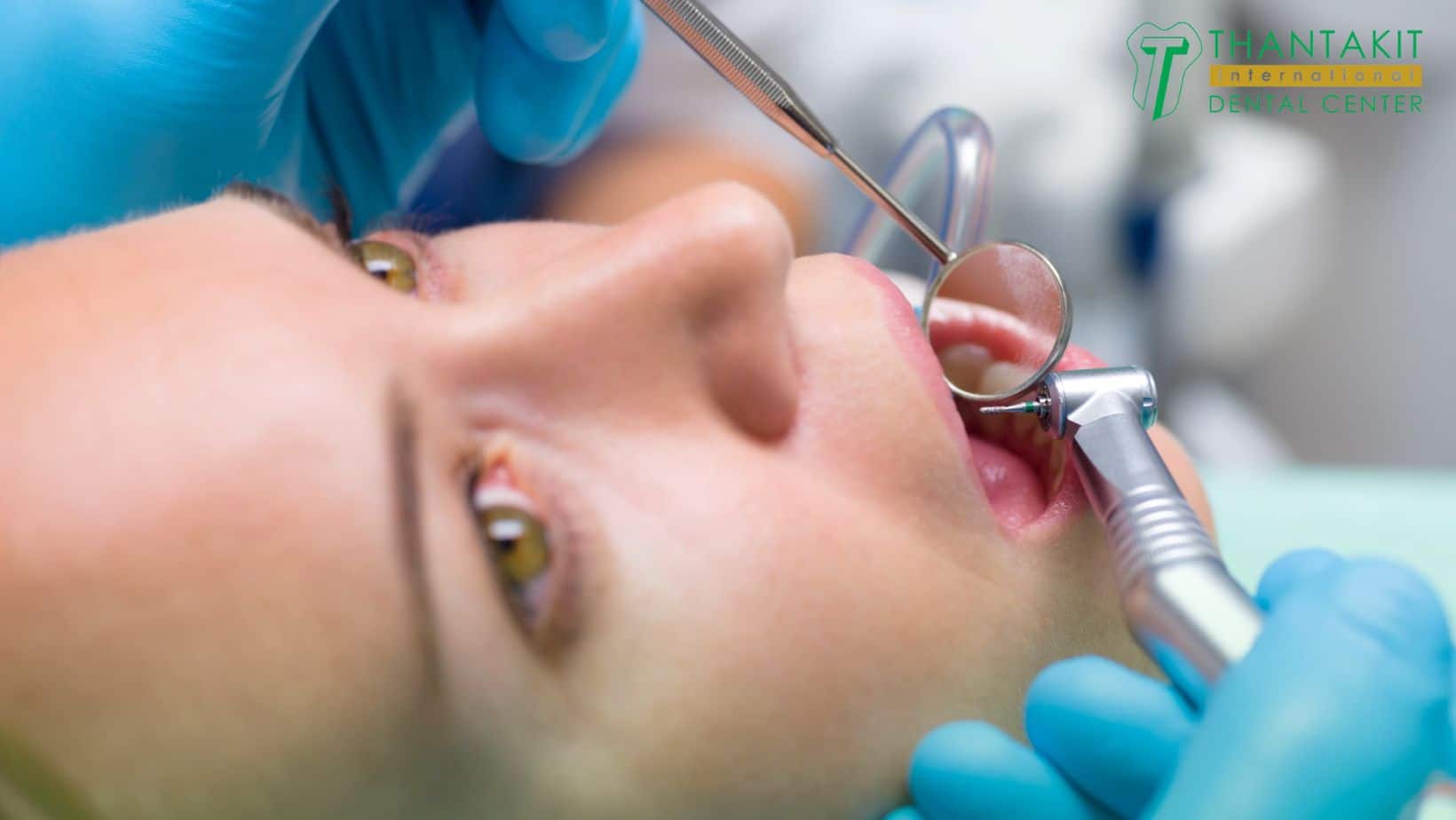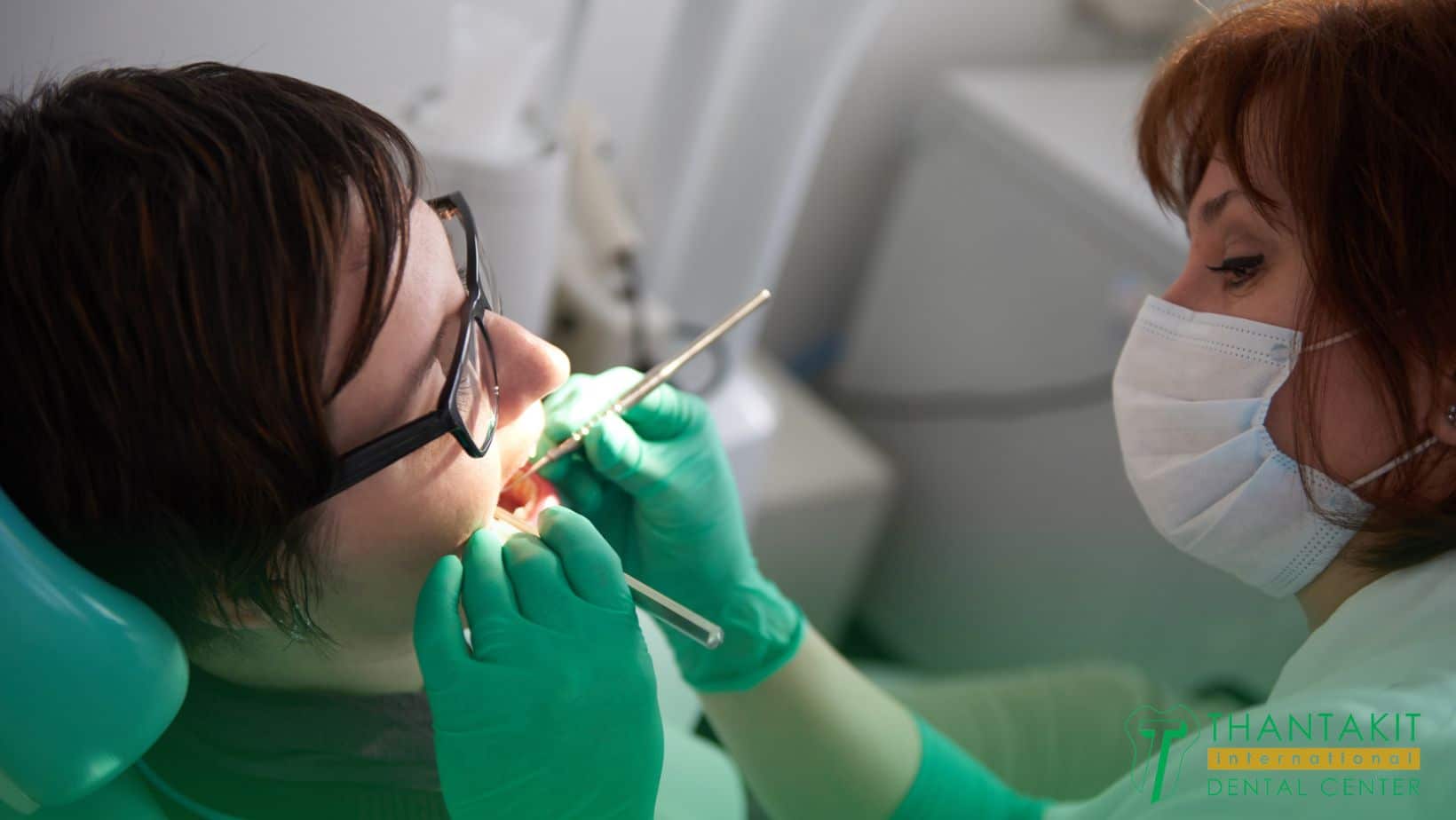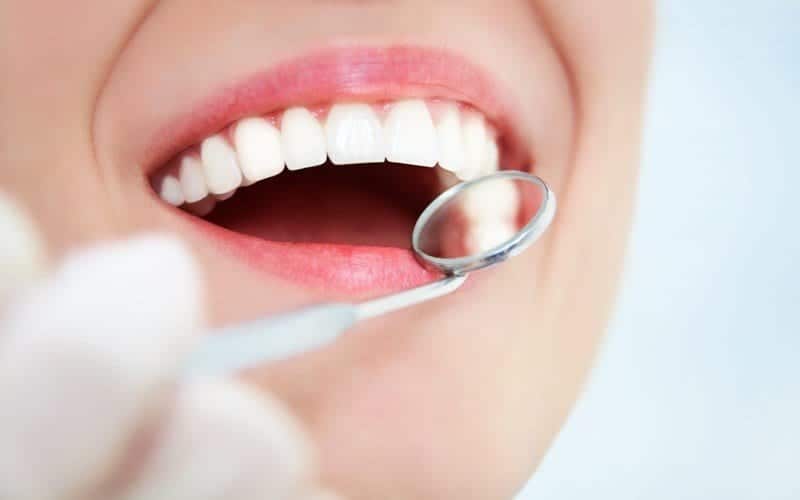Many people are surprised to learn just how closely connected oral health and diabetes truly are. Over the years as a dentist at Thantakit International Dental Center, I’ve seen how dental care and diabetes can influence each other in ways that few people expect. Diabetes can have a strong impact on your gums, and gum disease can actually make it harder to control blood sugar. This two-way connection means that taking care of your teeth and gums is really important for anyone managing diabetes.
Diabetes now affects hundreds of millions of people worldwide, and dentists increasingly recognize that managing oral health is a key part of controlling the disease.
Diabetic patients often come to our dental center with questions about dental treatments, including whether it’s safe to get dental implants. They want reassurance that their oral health can be managed safely, even with chronic medical issues. I want to walk you through key facts about how diabetes and dental care affect each other and what you can do for healthy teeth and gums at every stage.
Page Contents
Understanding the Two-Way Link Between Diabetes and Gum Disease
To understand how diabetes and oral health work together, you need to know a little about what diabetes does in the body. Diabetes is a condition where blood sugar tends to be high. High blood sugar over time can slow down your circulation, make tissues heal more slowly, and make infections harder to fight. This ongoing challenge means people with diabetes need to pay extra attention to their general and oral health.
Gums are very sensitive to changes in blood sugar. If your sugar is not well controlled, the blood vessels in your gums may not get as much oxygen or nutrients as they need. That makes the tissues weaker and more easily injured. It also makes your gums more likely to get inflamed and infected, starting with gingivitis and sometimes progressing to more severe infections called periodontitis.
The relationship works in both directions. When your gums are infected or inflamed, they release chemicals called inflammatory markers into your bloodstream. These inflammatory markers can actually make blood sugar go even higher and make it more difficult for your body’s insulin to work. This creates a pattern where poor gum health can lead to poor diabetes control, while uncontrolled diabetes makes gum disease worse.
Recent studies have shown that people with diabetes are at two to four times higher risk of developing periodontal disease than those without diabetes. It’s vital for diabetics to pay attention to bleeding gums, persistent bad breath, or any loose teeth as potential warning signs of this cycle taking hold.
From my own clinical experience at Thantakit, I see that diabetic patients who struggle with their blood sugar often have more severe gum disease. Their gums bleed easily, and they may notice their teeth feeling looser over time. Healing even after routine cleanings can take a bit longer. This doesn’t mean a diabetic patient can’t have a healthy mouth, but it does mean steady and careful management is really important.

Why Gum Health Matters So Much for Diabetic Patients
Some people think gum disease is just about occasional bleeding or bad breath, but it’s much more serious, especially if you have diabetes. Gum disease is actually a bacterial infection that lives below your gum line. Over time, those bacteria can cause bone and tissue loss around your teeth. They also trigger inflammation throughout your body, which can interfere with blood sugar management.
Common warning signs that might mean you have gum problems as a diabetic patient include:
- Red, swollen, or tender gums
- Bleeding when brushing or flossing
- Persistent bad breath or a bad taste in your
- Gums that pull away from your teeth
- Teeth that feel loose or shift position
When diabetes is not well controlled, these infections can spread more quickly. The body’s natural healing process becomes slower, and it gets harder to fight off bacteria. This can set up a cycle where gum infection makes it harder to keep glucose stable, and unstable glucose further weakens gum health.
At Thantakit, my team makes early intervention a priority. When gum disease is caught and treated early, it can stop this cycle and protect both your mouth and your overall health. Regular professional care, including thorough cleaning and monitoring, is key to preventing complications. Besides basic check-ups, we recommend deep cleaning procedures and modern gum therapy approaches for high-risk patients. Being proactive really makes a difference for diabetes management and oral well-being.
Dental Implants and Diabetes: What You Need to Know
One of the most common questions I get from diabetic patients is, “Can I get dental implants if I have diabetes?” The answer is yes, but with some extra precautions. Dental implants are a reliable solution for missing teeth, but the process does require healthy gums and bone, plus the ability to heal well after surgery.
Diabetes creates some specific challenges for dental implant treatment. High blood sugar can slow the process where implants fuse to the bone (called osseointegration). There’s also more risk for post-surgical infection and slower healing after the implant is placed.
At Thantakit, we use a detailed treatment protocol for diabetic patients considering implants. Having worked with many diabetic patients over the years, we follow steps like:
- Careful preoperative assessment, including a recent HbA1c (a measure of blood sugar control over time)
- Working closely with your medical doctors if needed to help bring glucose under better control before surgery
- Using antibiotic coverage and antiseptic rinses to lower infection risk before and after the procedure
- Strict adherence to sterilization and surgical precision in the clinic
- Frequent postoperative follow-up, including checkups, to monitor healing and spot any early warning signs of trouble
The good news is that with good planning and well-managed diabetes, implant success rates at Thantakit for diabetic patients are very similar to those without diabetes. What matters most is your overall level of blood sugar control and careful cooperation between you, your medical doctor, and your dental team.
Many people worry about being a candidate for implants if they’ve lived with diabetes for a long time. Even so, advances in dental implant technology and careful surgical techniques have made it much more feasible for diabetic patients to enjoy restored teeth. Our clinic offers digital x-rays and 3D scanning to precisely check bone structure and plan implant placement. We can customize care plans for those with longer diabetes histories, adjusting healing time and closely monitoring progress at every stage. For people considering implants, a consultation gives the dental team a chance to talk through the entire process, discuss risks, and make a plan that fits your health needs.

Healing and Recovery: Why Diabetic Patients Need Extra Care
Healing after any dental treatment is often a little slower for people with diabetes, especially if blood sugar is not stable. High blood sugar impairs how white blood cells work, which reduces your body’s ability to heal wounds and resist infection. Gums and bone tissues have a lot of tiny blood vessels, so they are very sensitive to changes in blood sugar.
If you need an extraction, deep cleaning, implant, or other procedure, I tell my diabetic patients to focus on stable blood sugar before and after. Sometimes, a short-term adjustment in medications or insulin may be recommended by your doctor. Eating healthy and following instructions are especially important during this time.
Thantakit’s approach to healing for our diabetic patients includes choices designed to lower risk and boost success. We often use minimally invasive surgery when possible, to reduce trauma. Our dentists and nurses are trained to check for the very earliest signs of infection, swelling, or delayed healing so we can act right away if needed.
We also provide detailed instructions on postop diet and oral hygiene. That often means:
- Avoiding sugary or sticky foods until fully healed
- Sticking to softer foods for the first few days after treatment
- Using antimicrobial mouth rinses carefully
- Keeping your regular diabetes medications as prescribed unless your physician tells you to stop or adjust
Another helpful step is gentle physiotherapy for jaw movement after bigger surgeries. Rest is crucial, but controlled jaw exercises as guided by your dentist can support better circulation and tissue repair. Most diabetic patients heal very well with these strategies, and serious complications are rare when there is good communication and consistent home care.
Patients who promptly report any warning signs, such as increased swelling, persistent pain, or pus, tend to have the best outcomes. Our staff are always on call to check in by phone or telemedicine if you’re recovering at home and need advice.
The Role of Routine Dental Visits in Blood Sugar Control
Routine dental appointments are not just about keeping your smile white. Professional cleanings help remove the deep-down plaque and bacteria that daily brushing can’t reach. For diabetic patients, these cleanings are especially helpful for reducing gum inflammation, which in turn may actually help stabilize blood sugar levels.
In my experience, having regular cleanings two or three times a year is not enough for some diabetic patients. I often recommend three to four visits per year, especially if your diabetes is not perfectly controlled or if you’ve had gum problems in the past.
Early warning signs like bleeding or swollen gums are sometimes the very first clue that blood sugar is not as stable as it should be. At Thantakit, our dental hygienists receive ongoing training in how to spot these signs and work closely with you to connect what we see in your mouth with what’s happening with your diabetes.
We also partner with your medical doctors when needed. Communication helps catch minor problems before they become major; both for your teeth and your overall health. Patients sometimes let us know about changes in their diabetes management, such as new medications or therapy adjustments, and we update our care accordingly. This kind of teamwork makes a real difference in outcomes for diabetic patients.
It’s also worth tracking down how stress and anxiety, common among people dealing with chronic illness, can impact your oral health. High stress can raise blood sugar and lower immune function. We encourage relaxation techniques and, if needed, can arrange sedation or calming options during procedures to help make regular care less stressful and more manageable for every patient.

Practical Oral Care Tips for People with Diabetes
There are some very effective steps you can start at home to keep your teeth and gums healthy, even if you are dealing with diabetes. Here are my main tips, based on my daily work with diabetic patients:
- Monitor your blood sugar regularly and work with your doctor to keep it as steady as possible, especially before and after dental treatments.
- Brush at least twice a day with a soft bristle toothbrush and a fluoride toothpaste. Gentle brushing is best; don’t scrub too hard, as gums can be more sensitive in people with diabetes.
- Floss once daily or use small brushes designed for cleaning between teeth. Flossing helps remove bacteria where toothbrushes don’t reach but be gentle to avoid irritating your gums.
- If your gums are sore or swollen, try a nonalcoholic antimicrobial mouth rinse.
- Avoid smoking at all costs; smoking greatly increases the risk of gum disease and makes diabetic complications more likely.
- Drink water throughout the day. Many diabetic patients have dry mouth, which can increase the risk for tooth decay; staying hydrated helps reduce that risk.
- Eat a balanced diet, rich in fiber and low in refined sugar. Well-planned meals help with both glucose control and healthy teeth.
- Don’t delay in booking a dental appointment if you notice changes in your mouth. The earlier we catch problems, the easier they are to fix.
If you use dentures or wear an appliance, check regularly for any sore spots or mouth ulcers, and let your dentist know right away if something feels wrong. Ill-fitting appliances can be a hidden source of irritation and inflammation. Silicones and soft liners for dentures can offer extra comfort for people with sensitive gums.
Saliva substitutes or sugar free gum may help with dry mouth. If you use sugar free gum, make sure it contains xylitol, which is known to cut down on cavity risk bacteria. Always let your dental team know about any new mouthwash or dental product you want to try; we’re happy to give advice tailored for diabetics.
Keeping a small notebook or digital log for oral symptoms along with your glucose readings can help both you and your dentist spot connections and trends between diabetes control and mouth changes. This is especially helpful if you’re traveling or away from your regular dental provider.

Extra Tips for Fast Recovery After Dental Procedures
- Follow all postop care and medication instructions closely.
- Eat soft foods first and resume your regular, healthy eating pattern only after consulting with your dentist.
- If you notice worsening pain, swelling, or unexplained bleeding after a procedure, return to the clinic as soon as possible.
- Keep your hands and mouth clean. Hand hygiene and clean toothbrushes reduce the risk of transferring bacteria to healing wounds.
- If you use insulin or blood sugar medication, check with your physician whether any short-term scheduling adjustment is needed after surgery days.
Specialized Care Protocols for Diabetic Patients at Thantakit
At Thantakit, we have developed special care protocols based on many years of experience treating diabetic patients. This means you’re not just getting standard dental care; you’re working with a team that understands your medical risks and tailors treatment to your needs.
Here’s what you can expect if you come to us as a diabetic patient:
- Thorough initial assessment including a review of your diabetes status, medications, and any recent lab results.
- Planning treatments only when your blood sugar is well controlled, or after working with your medical doctor to improve control.
- Enhanced infection control at every step, including extra disinfection and use of protective barriers where needed.
- Gentle techniques for cleanings, fillings, extractions, and implants. We also offer minimally invasive laser treatments for sensitive or high-risk patients.
- Supportive follow-up. Our staff checks on your healing by phone or during return visits and can answer your questions promptly. We also schedule regular reminders and offer tele consults for patients who can’t always come to the clinic in person.
Many international patients with diabetes have traveled to Thantakit specifically for dental implants, gum treatments, or all-in-one oral care. We understand that you may feel concerned about the risks. Patients report feeling reassured by our open communication, clear explanations, and transparent planning process. I believe that with the right approach, it is absolutely possible for diabetic patients to have strong, healthy teeth and gums. Communication is really important; share your medical history and ask questions whenever you feel unsure.
Our dedicated dental coordinators help schedule multi-visit treatments efficiently and assist with insurance paperwork, making the experience smoother for those managing chronic illness. We also share educational resources and easy to follow dietary guidance that ties together diabetes care and oral health.
Frequently Asked Questions About Dental Care for Diabetic Patients
Here are some common questions I hear from diabetic patients and my answers based on clinical experience:
Question: Will my diabetes always affect my dental treatments?
Answer: Not always, but it can. Well-managed diabetes may pose few, if any, extra risks during dental work. If your blood sugar is high or fluctuating, we may need to adjust the treatment plan or timing. Your dentist may also check your glucose levels before certain procedures or recommend a blood test to double-check overall stability.

Question: How soon after my diagnosis should I see a dentist?
Answer: As soon as possible. Early evaluation helps spot and treat minor dental problems before they become big ones. Ideally, you should have a dental checkup soon after your diabetes diagnosis and let us know about your health at every visit. Regular communication helps us catch even subtle changes that could affect gum health or healing after dental work.
Question: Are there any dental treatments that aren’t safe for diabetics?
Answer: Most routine treatments are safe when blood glucose is well controlled. More complex surgeries may need special precautions. I always review your medical status before recommending any treatment. If an emergency dental issue comes up and your blood sugar is unstable, we emphasize stabilizing your health first before proceeding with elective dental care.
Question: How can I improve healing after dental surgery if I have diabetes?
Answer: The best way is through steady blood sugar control and following postop instructions closely. Come for all your follow-ups and call your dentist if anything feels wrong. In some cases, using ice packs or prescribed pain medications can reduce discomfort and inflammation during the initial healing stage. Don’t skip your diabetes meds and continue a healthy diet to support tissue repair.
Question: What should I do if I get a mouth sore or infection?
Answer: Return to your dentist as soon as you can; diabetic patients are more prone to infection, and it’s easier to treat problems early. At Thantakit, we encourage our diabetic patients not to wait if something doesn’t feel right, especially with persistent sores, bleeding, or sudden pain. Early intervention usually prevents bigger health concerns, so there’s never any need to feel embarrassed about reaching out for help.
Dental care for diabetic patients is about teamwork between you, your dental professionals, and your medical team. With the right mindset, strong communication, and routine checkups, you can protect both your smile and your blood sugar health for years to come. Everyone at Thantakit is here to work with you through every step.
We are committed to helping you feel confident, safe, and well cared for as you manage diabetes and oral health together. If you ever have questions or want to know how to adjust your dental plan as your health changes, please don’t hesitate to check in with us. Staying sharp with regular oral care can set you on the path for a brighter, healthier future.
If you’re living with diabetes and need safe, professional dental care in Bangkok, Thantakit International Dental Center is here to help. Our dentists have decades of experience treating diabetic patients and use evidence-based methods to ensure every procedure, from cleanings to implants, is done safely. Call, email, or visit us today to schedule a consultation and take the next step toward better oral and overall health.












